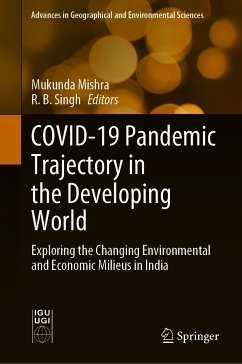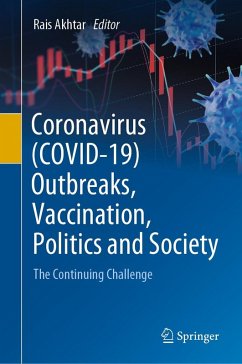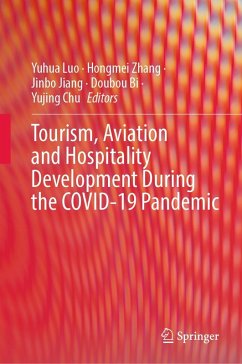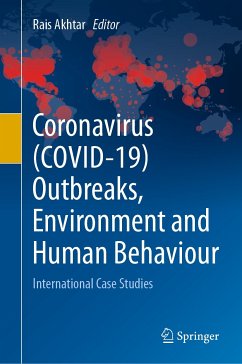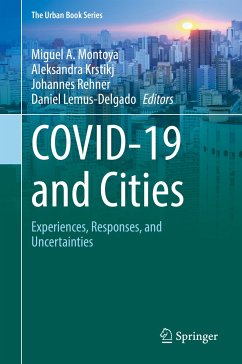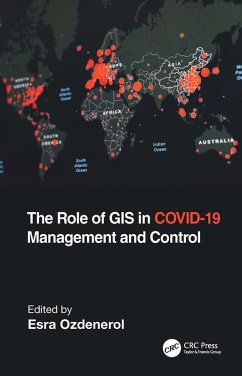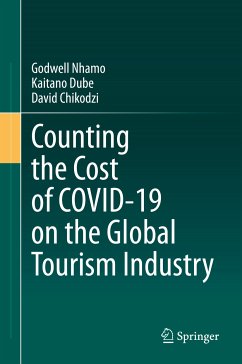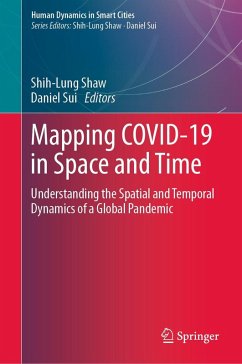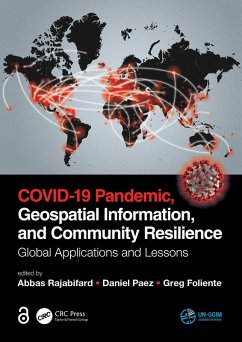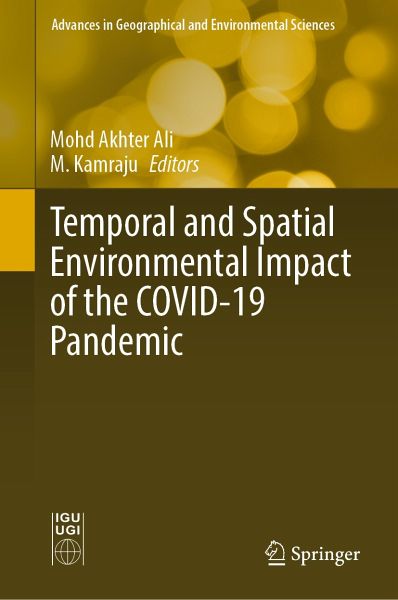
Temporal and Spatial Environmental Impact of the COVID-19 Pandemic (eBook, PDF)
Versandkostenfrei!
Sofort per Download lieferbar
136,95 €
inkl. MwSt.
Weitere Ausgaben:

PAYBACK Punkte
68 °P sammeln!
This book identifies, evaluates and reports the impacts of the COVID-19 pandemic on the physical, biological and socioeconomic environment, using the science and technology of geoinformatics. It encourages the environmental considerations in the future city and policy planning and decision-making. For example, according to the World Health Organization, 80% of people living in cities are exposed to polluted air that exceeds healthy levels. City planners have applied the developing concepts of sustainability to modern debates over how cities and regions should be reviewed, regenerated and refor...
This book identifies, evaluates and reports the impacts of the COVID-19 pandemic on the physical, biological and socioeconomic environment, using the science and technology of geoinformatics. It encourages the environmental considerations in the future city and policy planning and decision-making. For example, according to the World Health Organization, 80% of people living in cities are exposed to polluted air that exceeds healthy levels. City planners have applied the developing concepts of sustainability to modern debates over how cities and regions should be reviewed, regenerated and reformed since the introduction of the concept in developmental science. During the COVID-19 pandemic, a remarkable drop in air pollution has been observed in India and other countries, which has accelerated the shift to green and sustainable development.
Geoinformatics can provide solutions and resources for local, sustainable activities in education, health, sustainable agriculture, resource management and related fields. This book serves researchers in a variety of areas, including hazards, land surveys, remote sensing, cartography, geophysics, geology, natural resources, environment and geography.
Geoinformatics can provide solutions and resources for local, sustainable activities in education, health, sustainable agriculture, resource management and related fields. This book serves researchers in a variety of areas, including hazards, land surveys, remote sensing, cartography, geophysics, geology, natural resources, environment and geography.
Dieser Download kann aus rechtlichen Gründen nur mit Rechnungsadresse in A, B, BG, CY, CZ, D, DK, EW, E, FIN, F, GR, HR, H, IRL, I, LT, L, LR, M, NL, PL, P, R, S, SLO, SK ausgeliefert werden.



